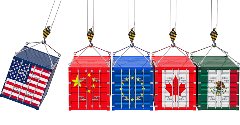News
Indonesia introduces new halal certification system
9 Sep 2024International food and beverage companies importing halal products into Indonesia need to adhere to new rules after the country introduced a new halal certification system.
Indonesia opened its new registration system in July. The halal product assurance organising body, Badan Penyelenggara Jaminan Produk Halal (BPJPH), is responsible for issuing certificates.

The news follows BPJPH’s 2023 announcement stating plans to implement new halal requirements for imported products entering the country.
Before entering the Indonesian food and beverage market, imported products must have obtained halal certification. These requirements align with Article 4 of Law No. 33 2014 concerning halal product assurance.
A new way to certify halal food and beverages
The new system, Foreign Halal Certificate (SHLN) registration, allows international companies to register halal certifications from their countries of origin.
Prior to the introduction of the SHLN, such companies were required to apply for halal certification in Indonesia. This resulted in delays in getting their products to market and, subsequently, restrictions on when and how they could sell their products to Indonesian consumers.
“Certainly, the SHLN will provide convenience for industrial activities and trade in halal products,” Annisa Syaharani, intellectual property and regulatory affairs co-ordinator at Tilleke and Gibbins, told Ingredients Network.
New system allows Indonesia to register foreign halal certificates
Indonesia’s new system allows BPJPH to register and acknowledge foreign halal certificates.
“Therefore, international companies do not need to apply [for] halal certification in Indonesia through BPJPH,” Syaharani said.
The system consists of four primary functions. Firstly, it is set up to enable brands to submit their application to register for foreign halal certificates. Next, it checks the completeness and validity of documents, and gives brands a mechanism to pay for overseas halal certificate registration fees. Finally, it allows Indonesian officials to issue foreign halal certificate registration numbers.
Prior to Indonesia introducing the SHLN system, international companies had to submit applications to BPJPH. With the new system, 37 Foreign Halal Certification Agencies (LHLNs) have collaborated with BPJPH to enable international companies from these countries to register their halal certificates.
Nine LHLNs signed mutual recognition agreements with BPJPH, expressing they mutually recognised and accepted halal certificates. In addition, 28 LHLNs signed other mutual recognition agreements with BPJPH agreeing to speed up their LHLN assessments to recognise and accept halal certificates.
Improving Indonesia’s food future
International companies can receive halal certification by submitting seven documents. These include an application letter for the SHLN, an appointment letter detailing the agreement from the home country company to carry out the application for the SHLN, and a business licence number from the importer and/or official representative in Indonesia, specifying the company’s specific details.
Regarding the nature of their halal products, international companies wishing to import into Indonesia must also submit a copy of the foreign halal certificate for products that will enter Indonesia’s excise or customs area. This must be authorised by the Indonesian representative abroad, in legislation signed by an authorised official.
“If the LHLN is in a member country of the apostille convention, then only an apostille certificate document is required,” Syaharani said.
The company must provide a document of co-operation stating that both the LHLN and BPJPH mutually recognise the halal certificates. Its list of goods due for importation into Indonesia then needs to be equipped with a harmonised system code (HS Code) number.
Finally, the company must provide a statement confirming the documents submitted are correct and valid.
Overcoming all entry barriers?
The new rules do not remove all the obstacles facing international companies planning to import food and beverage products into the Indonesian market.
“The SHLN only applies to halal certificates issued by a Foreign Halal Certification Agency (LHLN) which has collaborated on mutual recognition of halal certificates with BPJPH,” Syaharani said.
Information detailing the new certification system also suggests that it is not applicable to all products entering the Indonesian sector.
According to Article 127, paragraph 2 of Government Regulation No. 39 of 2021, certain products, such as raw materials, additives, processing aids, and slaughtered products, are still required to apply for halal certification in Indonesia – “meaning that the SHLN system is not applicable for those products,” Bella Nadhillah Rachmania, patent executive at Tilleke and Gibbins, told Ingredients Network.
“As the majority of Indonesia is Muslim, it is essential for the products circulated in the market to have halal certification,” added Rachmania.
BPJPH hopes that launching the new SHLN system will protect the Indonesian population’s public health.
Related news

Future F&B flavours favour exploration and explosive taste profiles
25 Mar 2025
Exploration and experimentation will define the future of flavour, according to Mintel, as consumers seek out taste profiles and textures that offer an adventurous eating experience.
Read more
Partnership plans to scale cultivated meat production
21 Mar 2025
Food technology innovator Ever After Foods (EAF) and multinational food leader Bühler are striving to overcome hurdles to access and accelerate the development of cultivated meat.
Read more
Global consumers enjoy food less and perceive it as less healthy
20 Mar 2025
Enjoyment of food and its perceived healthiness is dwindling among most global populations, according to findings from Gallup and Ando Foundation/Nissin Food Products.
Read more
Seafood set to ‘dethrone’ poultry as protein growth king
19 Mar 2025
Seafood is poised to surpass poultry as the leading contributor to global protein supply growth this year, according to Rabobank’s latest protein outlook.
Read more
Tariff volatility leaves food manufacturers in limbo
11 Mar 2025
Rapid US trade policy shifts and tariff escalations are creating uncertainty for food manufacturers and ingredient suppliers.
Read more
F&B industry hit with fresh greenwashing claims
26 Feb 2025
The food and beverage (F&B) industry is under fresh scrutiny amid claims of greenwashing, with Arla the latest company in the firing line.
Read more
Protein diversification: A massive missed market?
20 Feb 2025
Germany and the UK could be missing out on the massive market for alternative meats and proteins, with one new coalition calling for an end to the “steak-tofu struggle”.
Read more
Have scientists discovered a new tool to measure UPFs?
19 Feb 2025
Researchers have developed a new scoring system and database, compiling over 50,000 food items, of which over 1,000 are classified as ultra-processed.
Read more
China ramps up cultivated meat research with new innovation base
18 Feb 2025
China has opened its first fermentation and cultivated meat research centre in Beijing.
Read more
Most consumers lack trust in AI, but supplement users are ready to embrace the technology
14 Feb 2025
A survey of UK and US consumers found that most supplement users are willing to let AI make decisions on their behalf, but they also demand greater transparency.
Read more